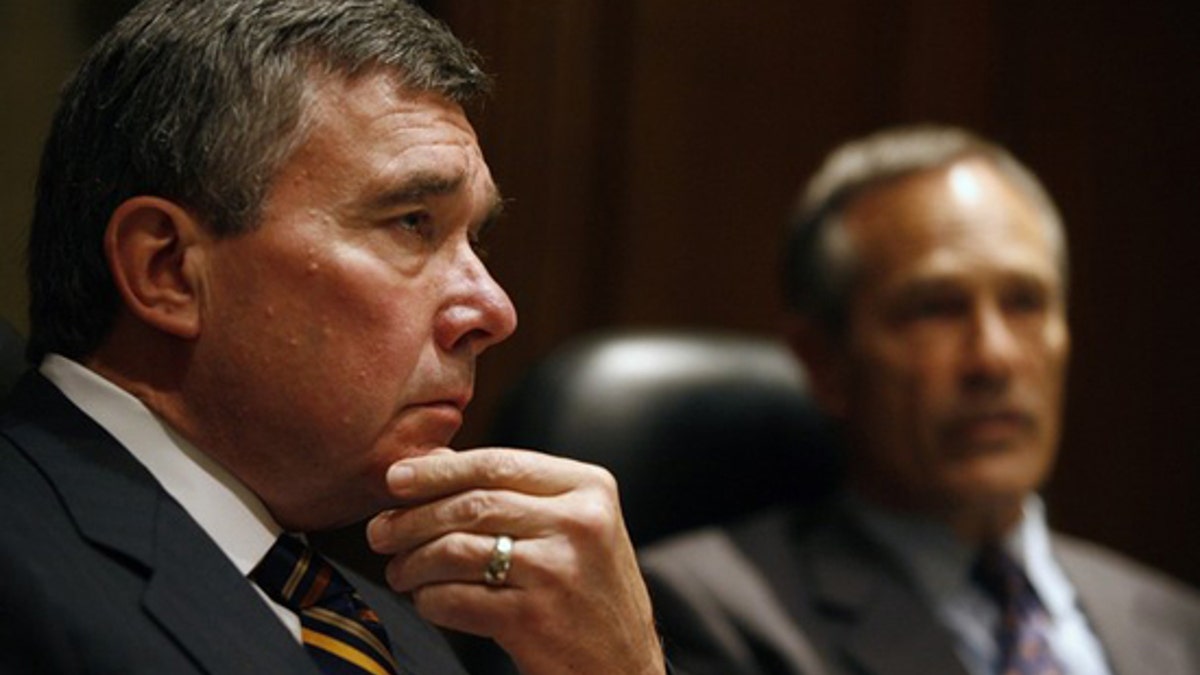
U.S. drug czar Gil Kerlikowske (L) and U.S. border czar Alan Bersin attend an interview with Reuters in Monterrey, northern Mexico September 3, 2009. (Reuters)
The White House pushed back hard on a report set for release Thursday that will declare the global war on drugs a failure, saying the study is misguided and calls for policies that would only make the problem of drug addiction worse.
Compiled by the Global Commission on Drug Policy, which includes former heads of state, a former U.N. secretary-general and a business mogul, the report calls on governments to end the criminalization of marijuana and other controlled substances.
The commission took particular aim at the United States, saying the country should change its anti-drug policies from being guided by anti-crime approaches to ones rooted in health care and human rights.
But the office of White House drug czar Gil Kerlikowske dismissed the recommendations.
"Drug addiction is a disease that can be successfully prevented and treated. Making drugs more available -- as this report suggests -- will make it harder to keep our communities healthy and safe," Office of National Drug Control Policy spokesman Rafael Lemaitre said.
That office cites statistics showing declines in U.S. drug use compared to 30 years ago, along with a more recent 46 percent drop in current cocaine use among young adults over the last five years.
But the report cited U.N. estimates that opiate use increased 34.5 percent worldwide and cocaine 27 percent from 1998 to 2008, while the use of cannabis, or marijuana, was up 8.5 percent.
"Political leaders and public figures should have the courage to articulate publicly what many of them acknowledge privately: that the evidence overwhelmingly demonstrates that repressive strategies will not solve the drug problem, and that the war on drugs has not, and cannot, be won," the report said.
Instead of punishing users who the report says "do no harm to others," the commission argues that governments should end criminalization of drug use, experiment with legal models that would undermine organized crime syndicates and offer health and treatment services for drug-users in need.
The commission called for drug policies based on methods empirically proven to reduce crime, lead to better health and promote economic and social development.
Regarding the United States, former Colombian president Cesar Gaviria told The Associated Press by phone that the country should starting thinking about "alternatives."
"We don't see the U.S. evolving in a way that is compatible with our (countries') long-term interests," he said.
The Associated Press contributed to this report.












































